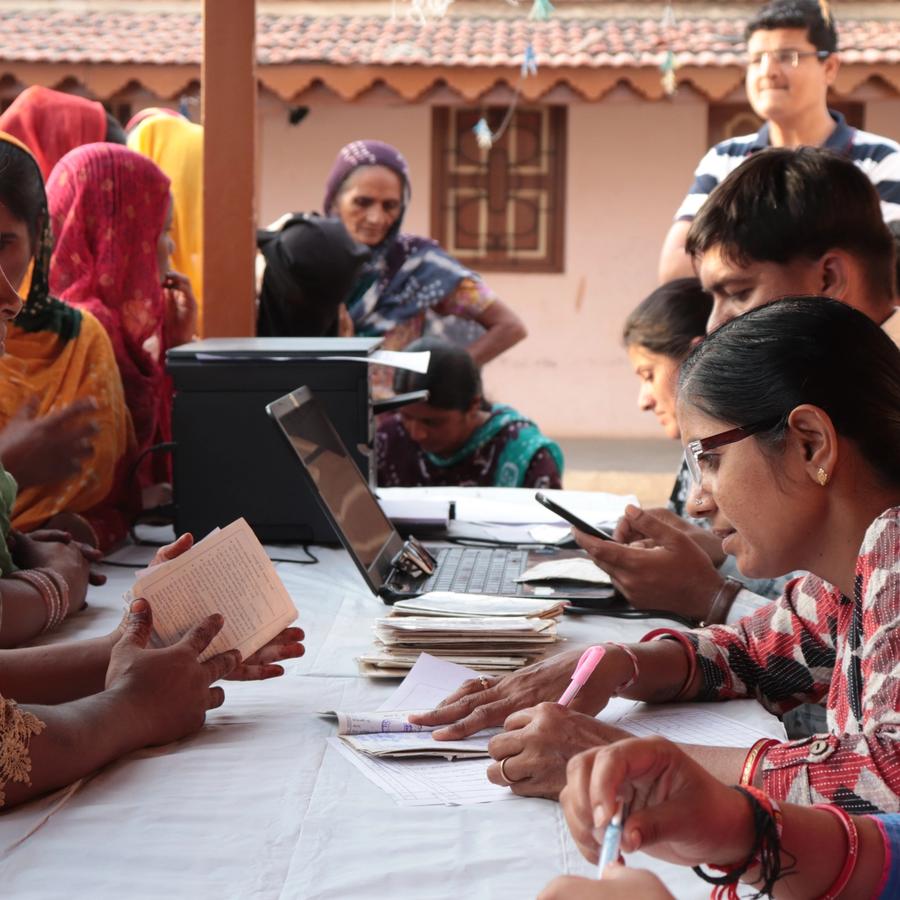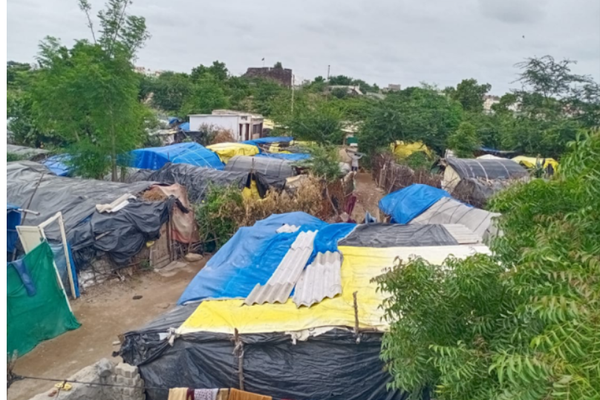
News Article
When a city rebuilt forgets its builders: Migrant workers’ struggle for sanitation in Bhuj | Counterview
Access to safe drinking water and sanitation is not a privilege—it is a fundamental human right. This principle has been unequivocally recognised by the United Nations and repeatedly affirmed by the Supreme Court of India as intrinsic to the right to life and dignity under Article 21 of the Constitution. Yet, for thousands of migrant workers living in Bhuj, this right remains elusive, exposing a troubling disconnect between constitutional guarantees, policy declarations, and lived reality.
Read more
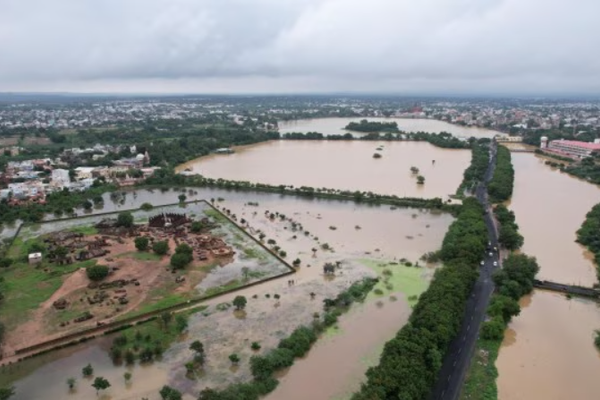
News Article
In a first, Bhuj set for ‘Watch Day’ celebrations on Oct 10 | The Indian Express
Earlier this year, Bhuj Historic Water Systems was selected by the World Monuments Fund as one amongst the 25 global sites included on the 2025 World Monuments Watch highlighting the need for its immediate conservation.
Read more
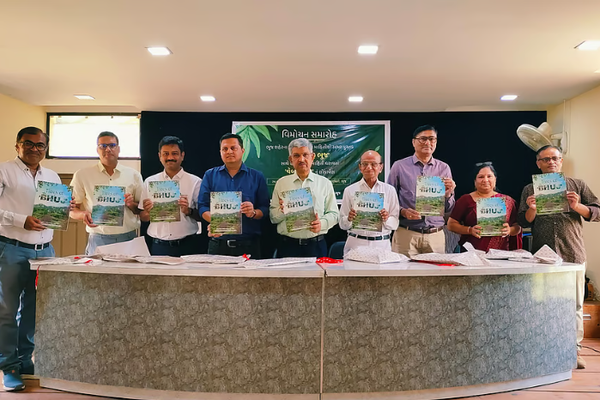
News Article
Trees of Bhuj: Using big data to boost urban biodiversity and build a greener, smarter city | India Water Portal
In the semi-arid landscape of Bhuj, Gujarat, something quietly remarkable is taking root—literally. While cities across India grapple with heat islands and vanishing green cover, Bhuj is building its climate resilience one tree at a time, powered by data, community action, and a deep respect for biodiversity.
Read more
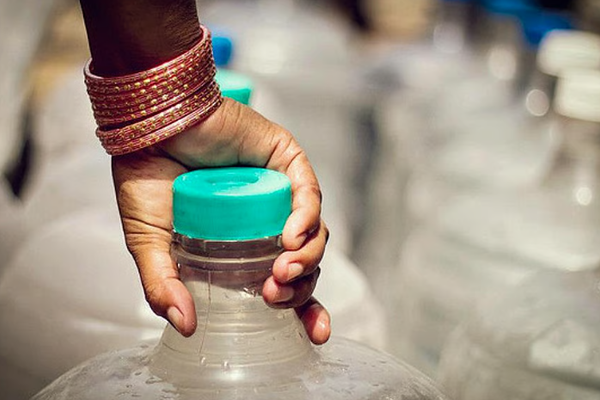
News Article
When water becomes a number: The hidden politics of TDS and the rise of RO markets in Bhuj | India Water Portal
In Bhuj, Gujarat, rising RO purifier use reflects a shift from taste-based trust to TDS numbers, turning water quality into a private concern and moving accountability away from the state.
Read more
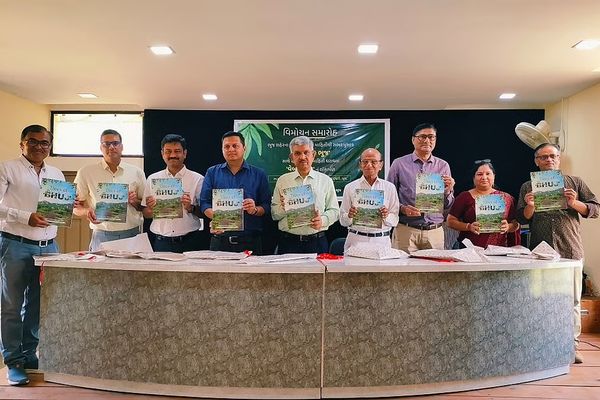
News Article
Trees of Bhuj: Book detailing tree biodiversity in Kutch’s capital launched | DownToEarth
A book titled Trees of Bhuj was launched on March 26, detailing the tree biodiversity of the capital city of Kutch. The latter is the largest district in the country. The authors of the book are Pankaj Joshi, botanist and researcher, and Ekta Joshi, faculty, Lalan College, Bhuj-Kutch. A web portal (treesofbhuj.in) was also launched the same day, providing detailed information on all the trees documented in the book.
Read more
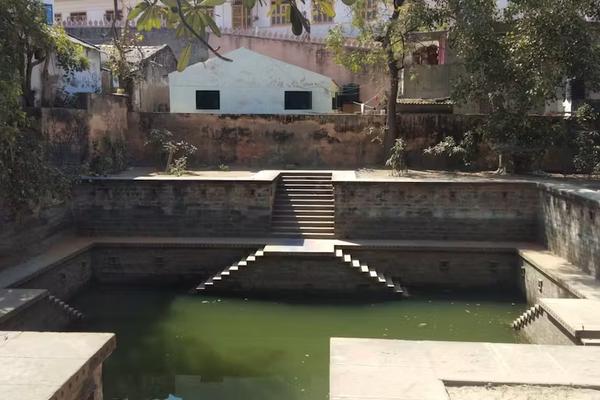
News Article
Bhuj’s Hamirsar on Monuments Watch list | Ahmedabad Mirror
Bhuj City’s historic Hamirsar lake and part of the larger water system in the city have been included in the 2025 World Monument Watch. This list spotlights important heritage sites worldwide facing urgent preservation challenges.
Read more
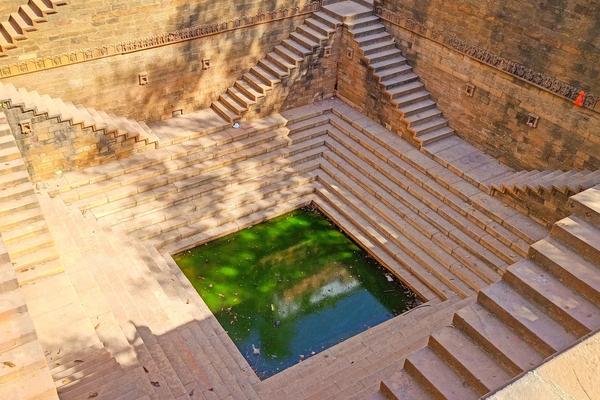
News Article
Bhuj historic water systems in Gujarat figures in 2025 World Monuments Watch | Indian Express
World Monuments Fund (WMF) has selected Bhuj historic water systems in Gujarat’s Kutch district to be among the list of 25 sites across the world for this year’s World Monuments Watch, highlighting the need for its immediate conservation.
Read more
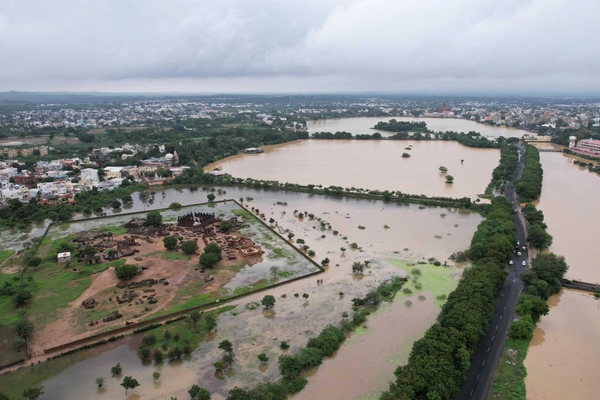
News Article
2025 Watch List : Bhuj Historic Water Systems, India | World Monument Fund
The 2025 World Monuments Watch aims to increase awareness of Bhuj’s historic water systems and support rehabilitation efforts. Ingenious rainwater collection systems have fallen out of use in favour of modern infrastructure—but as India's water crisis deepens, revitalising this heritage technology could foster resource security.
Read more

News Article
Bhuj Historic Water Systems, India is on the 2025 World Monuments Watch | CRDF
This year’s Watch includes various cultural heritage sites whose preservation is urgent and vital to the communities surrounding them. The 25 sites represent 29 countries across five continents and the Moon.
Read more
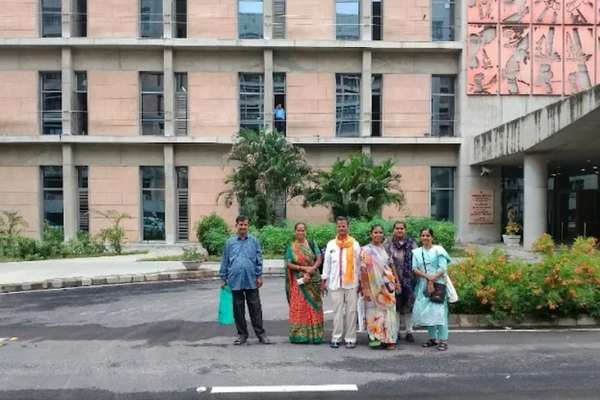
News Article
Outdated norms 'depriving poor' of housing benefits under 2003 Gujarat Govt GR | Counterview
As per the Housing for All Plan of Action (HFAPoA) of Bhuj, prepared under the Pradhan Mantri Awas Yojna (PMAY) in 2018, out of a total of 13,978 households residing in slums, 83 percent (approximately 11,631) houses were owned and were sited on public land.
Read more
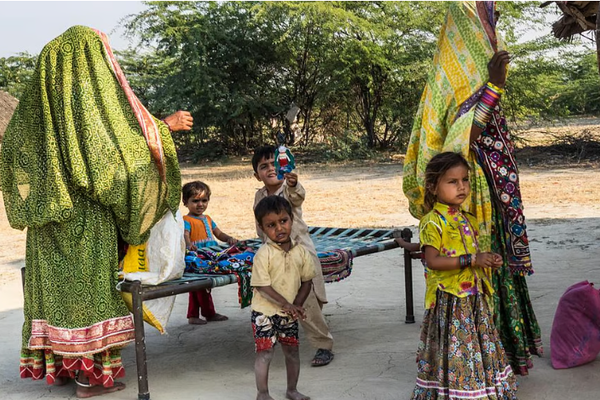
News Article
PMAY paradox: Policy gap leaves Bhuj's poor homeless | India Water Portal
As per the Housing for All Plan of Action of Bhuj, prepared under the Pradhan Mantri Awas Yojna in 2018, out of a total of 13,978 households residing in slums in Bhuj, 83 percent houses were owned and were sited on public land.
Read more
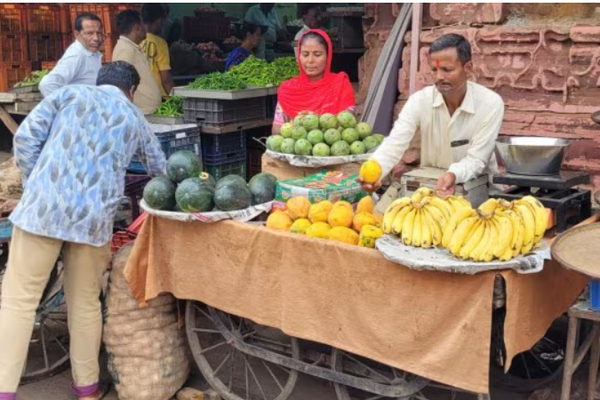
News Article
His application for residential plot rejected, vegetable vendor requests Gujarat CM to hike income criterion | The Indian Express
Karshan Vaghela, a vegetable and fruit vendor from a slum in Kutch district’s Bhuj town, has complained to the Gujarat chief minister’s office that the district collector has rejected his application for a plot of government land as his annual income exceeded the criterion fixed two decades ago.
Read more
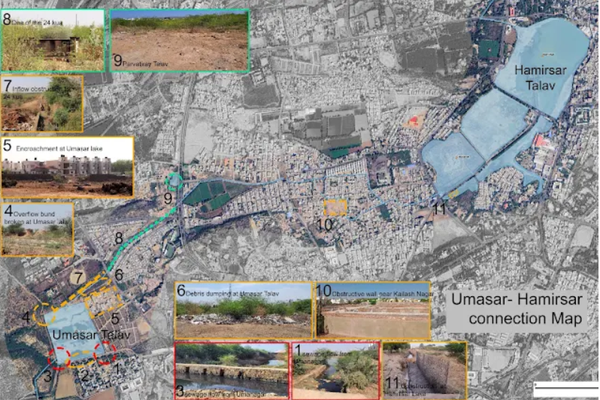
News Article
Concerned citizens' letter: Urgently restore, protect historic lakes of water stressed Bhuj | Counterview
Kachchh, a semi-arid district in western Gujarat, is a highly water-distressed area. As per the Central Groundwater Board (CGWB) report published in 2022, groundwater has depleted by 12.43 meters between 2011 and 2020. The report further states that Kutch is one of three districts after Panchmahal and Sabarkantha in Gujarat where groundwater is depleting at the rate of over one meter annually due to various reasons such as the establishment of industrial setups, development by ignoring water reservoirs, and water channels, etc.
Read more
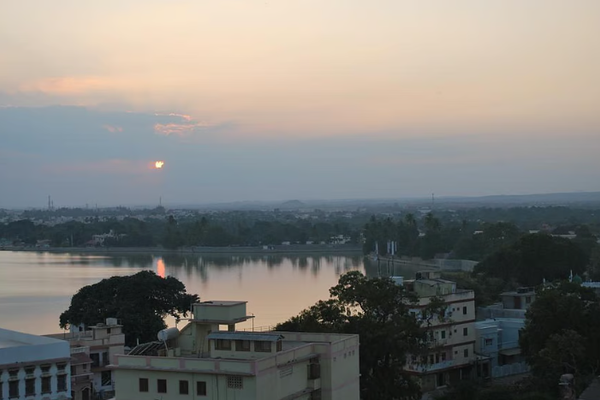
News Article
Bhuj citizens seek restoration of Hamirsar and other water bodies | India Water Portal
Hamirsar is a 450-year-old artificial lake that bears the name of Rao Hamir, the founder of Bhuj and Rao Khengarji I's father, who founded the Kutchi Jadeja dynasty. In order to meet the needs of Bhuj, which was also designated as the capital in 1549, this area in the salinized and arid Kutch was developed over a number of decades, and canals and tunnels were built to combine water from three river systems and recharge the aquifers.
Read more
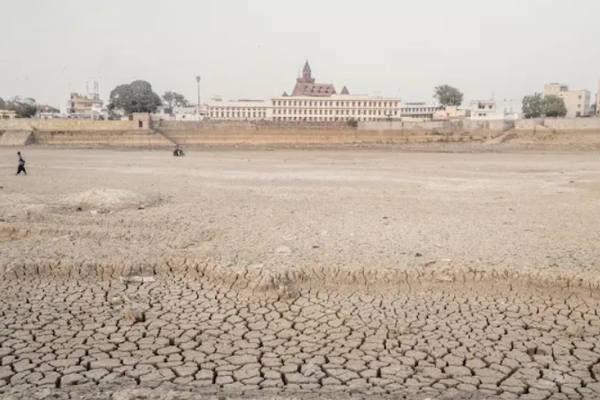
News Article
Whither Bhuj heritage site Hamirsar's water system, wonder Kutch citizens, experts | Counterview
Several environmental activists, social workers and academics, most of them belonging to the arid Kutch district of Gujarat, have sought Gujarat authorities’ urgent intervention to “notify, protect, restore and rejuvenate” lakes of the historic Bhuj city, threatening legal action in case they fail to do it.
Read more
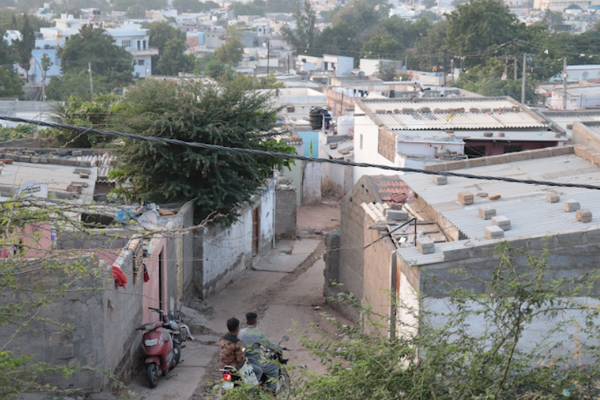
News Article
Slum land rights: A necessity for success of PMAY | India Water Portal
Informal housing caters to over one-third of the population in our cities, who cannot afford formal housing. Cities are known as engines of economy and this economy consists of over 90 per cent informal sector workers. However, housing requirements for these people have never got utmost priority by governments, post-independence.
Read more
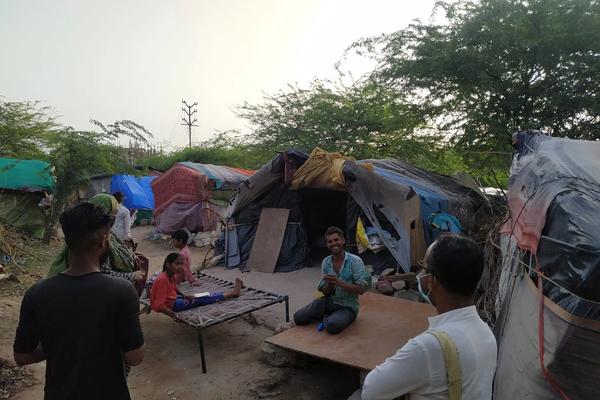
News Article
Middle-class bag most benefits: Lack of land titles, funds leave slum dwellers ‘homeless’ under PMAY in Gujarat | Indian Express
Around 94,000 or 48 per cent of the 1.97 lakh families living in slum pockets in the towns of Gujarat want to construct houses on their own with state assistance under the Centre’s Pradhan Mantri Awas Yojana (PMAY) scheme’s beneficiary-led construction (BLC) component but have failed to do so largely due to the land ownership issues, a recent study has found.
Read more
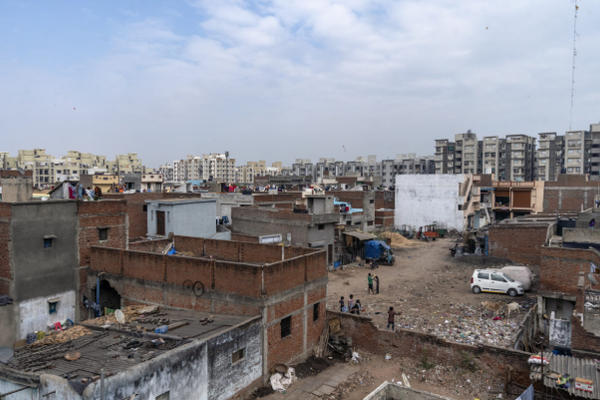
News Article
PMAY Fails To Help Gujarat Slum Dwellers | Reality
A new study on the implementation of Pradhan Mantri Awas Yojana (PMAY) has said that in Gujarat, no progress has been made towards tenure regularisation, a key requirement for providing housing to the state’s slum dwellers.
Read more

News Article
Prime Minister's 'affordable' housing policy fails to help Gujarat slum dwellers: Study | Counterview
The study, carried out by the non-profit Homes in the City (HIC), which is based in Bhuj, district headquarter of Kutch that saw a devastating earthquake in 2001, says, the failure to provide affordable housing is there despite the fact that there has been “significant demand” in all the 83 out of 153 Gujarat municipalities studied by experts involved in the study.
Read more
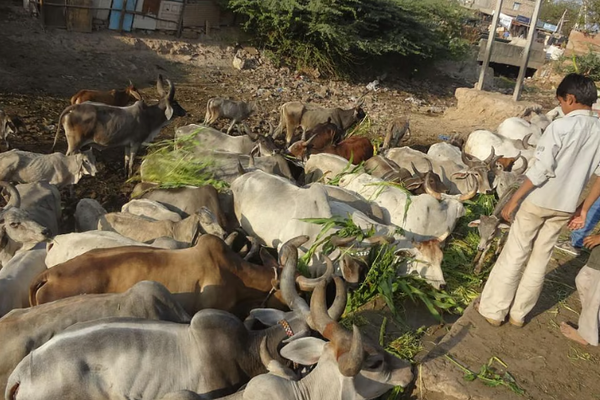
News Article
Bhuj cattle rearers face the heat of lockdown | India Water Portal
At Bhuj, the cattle rearers were a part of the city’s economy from the pre-independence era and were mostly employed by the king or mahajans. They resided on the land where they took up rearing activity. Post-independence, these lands came under government control but the cattle rearers continued to dwell on it.
Read more
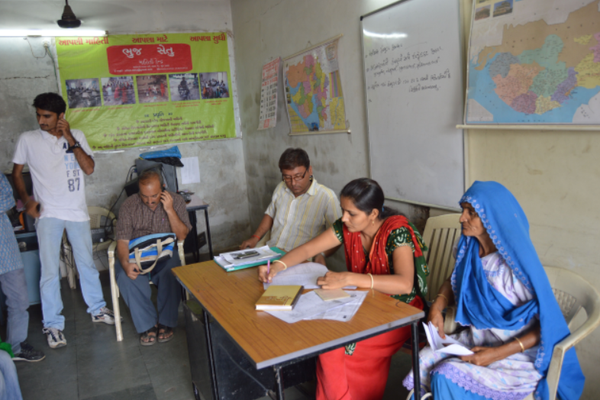
News Article
A bridge not too far | Vikalp Sangam
Do we ever pause to think how a city really works? How easy or difficult is it to understand and access government schemes, especially for the poor? How can spaces be created for dialogue between the government and marginalised sections of urban society, such as slum dwellers?
Read more
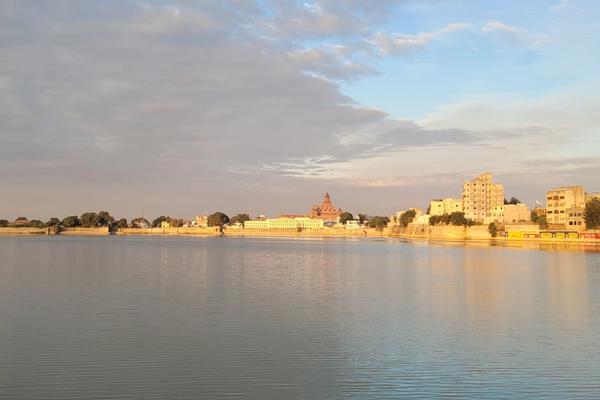
News Article
Kutch's Water Champions In The Making | HUFFPOST
Kutch's arid history is well known. It is associated with water scarcity and frequent droughts. Yet, for more than 500 years, Bhuj grew as an urban centre owing to its traditional water resource management system based on geo-hydrological knowledge. Unfortunately with time, as centralised systems became more popular, indigenous knowledge was gradually lost. The result is that the city is increasingly depending on external sources like Narmada's waters or borewells for its water supply.
Read more
